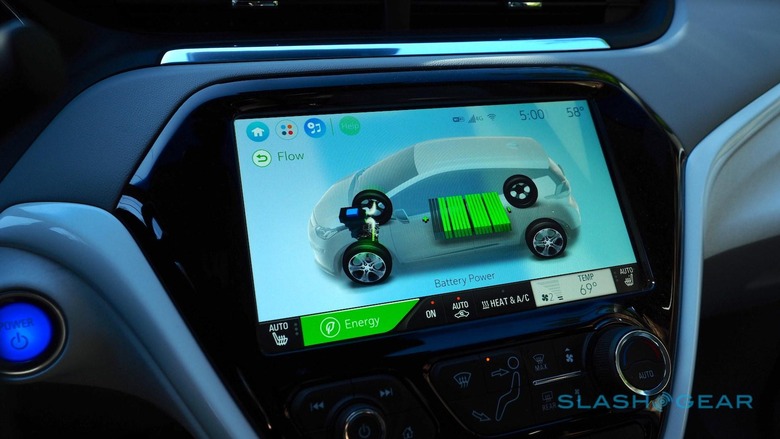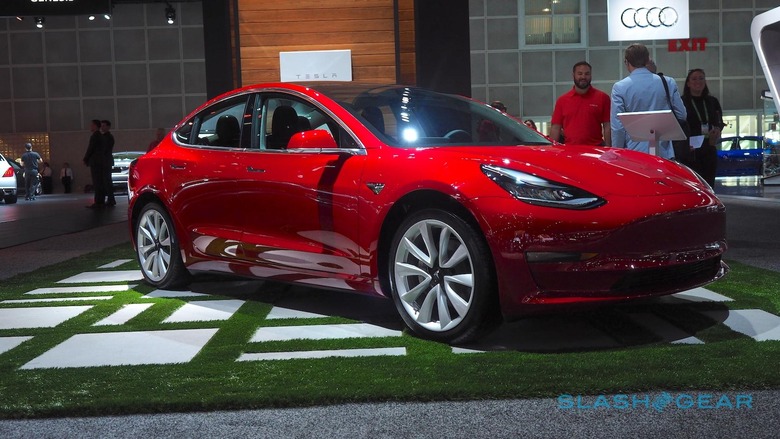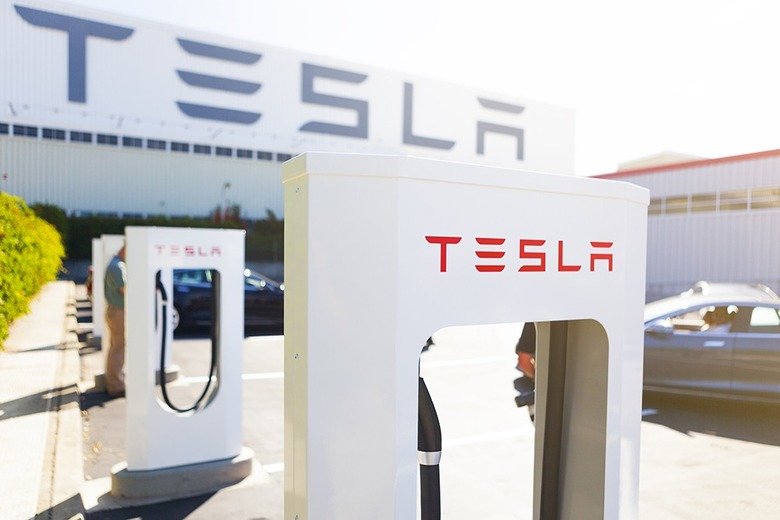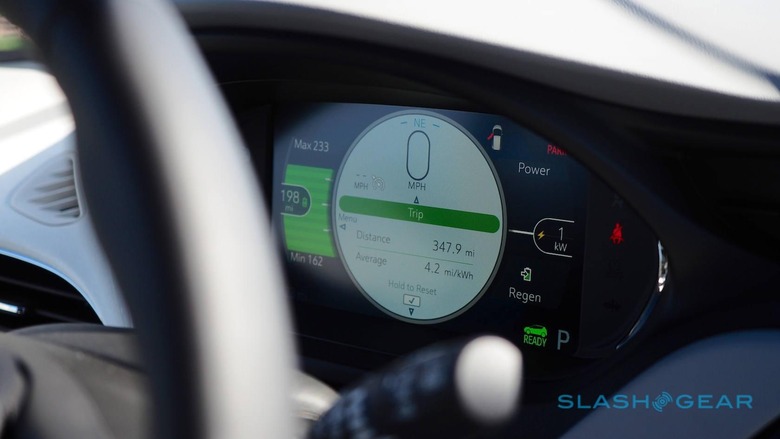2017's Most Surprising Car Has A Lesson For EVs In 2018
In a year where I've driven supercars like the new Ford GT, six-figure hand-built exotica such as Rolls-Royce's Dawn, and vehicles with horsepower by the bucketload, the car that stands out at the end of all that was a surprise even to me. Chevrolet's Bolt EV is, on the face of it, a fairly unassuming little hatchback that just so happens to be electric, not gas-powered. It's affordable, as electric cars go, but it has a surprise under the inoffensive sheet-metal.
That's the range. Chevy and the EPA list it as 238 miles on a full charge of its 60 kW battery, but in my experience the actual potential is noticeably greater than the official numbers suggest.
During my time back in April with the Bolt EV, I was playing chauffeur to some visitors from the UK. At the time, I'd expected to be driving a very different car – the Ford F-150 Raptor, indeed, a supercar-meets-truck that also made a big impression on me, albeit for different reasons – but a last-minute swap meant it was the compact electric runabout on my drive instead. Honestly, I was concerned.

I knew my friends wanted to explore the Bay Area, but I also knew that refueling the Chevrolet wouldn't be as straightforward as pumping premium unleaded into a Raptor – or any other gasoline car – would be. In the end, though, with little in the way of compromise to how I drove and four adults onboard, I could've easily gone 275+ miles.
Of course, mention the Bolt EV and someone invariably reminds you of the Tesla Model 3. Certainly, Elon Musk's most affordable electric car is fascinating (like with most media, the automaker has been reluctant to allow me behind the wheel), but it's also mighty rare. By now, Tesla intended the Model 3 to be rolling off its production lines at speed. Instead, what should've been a gush is a mere trickle.

That'll improve, inevitably, but it's hard to judge the Model 3 alongside more available EVs. Indeed, if you were to join the reservation line today, you could probably see out a 2-3 year lease on a Bolt EV before it was time to head down to the nearest Tesla dealership and pick up your new car.
What's interesting is that today's all-electric cars probably have more than enough range for the majority of drivers. What they invariably fail at doing is making recharging headache free. It's the area in which, despite the imaginative designs and concepts we've seen over the past twelve months from more mainstream automakers, Tesla still holds its advantage.
Though the Bolt EV impressed me with its real-world range, trying to plan for that journey was hugely frustrating. Where Tesla makes it easy to see where the Superchargers are on your route, whether in the car, on your phone, or in your desktop browser, the Chevy did little to assist when it came to figuring out where I could've recharged had that been necessary.

Multiple competing charging networks, each with different power outputs and sometimes different connectors. Some requiring a membership card, others effectively just plug-and-play. There are third-party apps and sites that offer assistance, including user-posted reviews which can often be more helpful than the "official" data, but to say it's not consumer-friendly is an understatement. I spent an evening trying to calculate ranges and recharge times, figuring out potential layovers and trying to fathom where the little electric car would be welcome and where the juice simply wouldn't flow.
There, then, is 2018's challenge for EV automakers: joining up the dots. I've singled the Bolt EV out in particular, but really this is a problem that every electric vehicle suffers, bar those with a Tesla badge on the nose. Just because I'm forward-thinking enough to drive an EV, doesn't mean I should also have to be an expert cartographer in order to charge it while away from home.
What's important to highlight is that I don't necessarily think this is a charger availability problem. I'm not suggesting that Chevrolet needs to invest in a homegrown, built-from-scratch charging ecosystem of the sort that Tesla has constructed. But, for all the technical prowess of cars like the Bolt EV (and, indeed, the under-appreciated Volt hybrid, which by all reports appears to be on the chopping block), it's missing a key part of the range anxiety solution.

Certainly, there's more to getting electric vehicles to mass adoption. A Bolt-based crossover – as, for example, VW will do with the I.D. CROZZ in 2020 – would be an obvious addition to Chevrolet's range, and probably more palatable to American drivers than the Euro-friendly hatchback of the current car. The price delta between EVs and traditional gasoline vehicles still needs to be closed.
All the same, there's low hanging fruit that could be picked while the engineers and designers work on such problems. The Bolt EV was the first all-electric car I could see myself realistically living with, but Chevrolet owes it to its zero-emissions drivers to take the frustrating homework out of recharging on the go.
